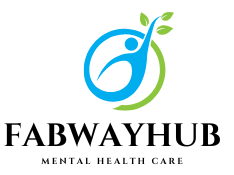Aging is a natural part of life, but the way we approach it can significantly affect our quality of life and overall health. Maintaining both mental and physical well-being is essential to aging well, ensuring that we not only survive but thrive as we grow older. The key lies in adopting daily habits that promote physical strength, mental sharpness, emotional resilience, and overall vitality. In this article, we will discuss the most effective strategies to support mental and physical health as we age, offering you practical steps to live a fulfilling and active life at any age.
The Importance of Physical Health in Aging
Physical health plays a crucial role in maintaining independence and vitality as we age. As we grow older, our bodies undergo various changes, such as decreased muscle mass, slower metabolism, and reduced bone density. However, with the right lifestyle choices, we can counteract these changes and enjoy a healthier, more active life.
Regular Exercise: The Cornerstone of Physical Health
Exercise is essential for preserving muscle mass, joint mobility, cardiovascular health, and overall physical function. Regular physical activity has been proven to reduce the risk of chronic diseases, such as diabetes, heart disease, and obesity. It also helps improve mental clarity and emotional well-being, making it a key component of healthy aging.
Strength Training
Strength training is particularly important as we age because it helps prevent muscle loss (sarcopenia), improves bone density, and maintains metabolic function. The CDC recommends strength training exercises at least two days per week, targeting all major muscle groups. This can be achieved with free weights, resistance bands, or bodyweight exercises like squats, lunges, and push-ups.
Cardiovascular Exercise
Aerobic exercises such as walking, cycling, swimming, or dancing are crucial for maintaining heart health, boosting stamina, and managing weight. Aim for at least 150 minutes of moderate-intensity aerobic activity per week. Regular cardiovascular exercise also enhances blood circulation, improves lung capacity, and promotes overall vitality.
Balance and Flexibility Exercises
Maintaining balance and flexibility is key to preventing falls, which become more common with age. Practices like yoga, Pilates, and tai chi can improve flexibility, reduce muscle stiffness, and enhance balance. These activities also reduce stress and improve mental focus, contributing to both physical and mental wellness.
Proper Nutrition: Fueling the Body for Longevity
Nutrition plays a significant role in how we age. A well-balanced diet rich in nutrients can help prevent age-related conditions, maintain energy levels, and keep the body strong. The right foods can support heart health, bone health, muscle function, and cognitive function.
Protein for Muscle Mass
Protein is essential for preserving muscle mass and repairing tissues. As we age, it becomes even more important to consume adequate protein to maintain muscle strength and prevent sarcopenia. Include lean meats, fish, eggs, beans, legumes, and dairy products in your diet. Aim for 1.0 to 1.2 grams of protein per kilogram of body weight daily.
Healthy Fats for Brain Health
Omega-3 fatty acids, found in foods like salmon, flaxseeds, walnuts, and olive oil, are critical for brain function, reducing inflammation, and promoting heart health. These healthy fats support cognitive function, reduce the risk of heart disease, and help maintain joint health.
Calcium and Vitamin D for Bone Health
As we age, bone density decreases, increasing the risk of fractures and osteoporosis. To maintain strong bones, consume foods rich in calcium, such as dairy products, fortified plant-based milks, and leafy greens. Vitamin D is also essential for calcium absorption, so ensure you get enough sunlight and include vitamin D-rich foods like fatty fish and fortified dairy products in your diet.
Fiber for Digestive Health
Fiber is important for maintaining digestive health and preventing constipation. It also helps regulate blood sugar and cholesterol levels. Incorporate whole grains, fruits, vegetables, and legumes into your daily meals to meet the recommended intake of 25 to 30 grams of fiber per day.
Hydration: The Foundation of Health
Staying hydrated is essential for overall health, particularly as we age. Dehydration can cause fatigue, dizziness, confusion, and even cognitive decline. Aim for at least eight cups of water daily, and increase your intake if you’re physically active or in hot climates. Water-rich fruits and vegetables, such as cucumbers, watermelon, and oranges, can also help with hydration.
Mental Health Strategies for Aging Well
While physical health is important, mental health plays an equally vital role in aging well. Aging can bring about challenges such as cognitive decline, memory loss, and emotional changes. However, there are numerous strategies to maintain a sharp mind, boost emotional resilience, and reduce the risk of mental health conditions such as depression and anxiety.
Cognitive Stimulation: Keeping the Brain Active
Engaging in mentally stimulating activities helps preserve cognitive function and improve brain plasticity. Just like physical exercise strengthens muscles, mental exercise strengthens the brain.
Puzzles and Games
Engage in activities like crossword puzzles, Sudoku, chess, or brain training apps to keep your mind sharp. These activities challenge memory, problem-solving skills, and cognitive function, helping to maintain mental clarity and reduce the risk of cognitive decline.
Learning New Skills
Never stop learning! Take up a new hobby, learn a new language, or take an online course. Learning new skills challenges the brain and stimulates neural connections, which is essential for maintaining cognitive function. Even something as simple as reading new books or listening to educational podcasts can have a positive impact on brain health.
Social Connections: Combatting Isolation
Loneliness and social isolation can have negative effects on mental health, leading to increased risks of depression, anxiety, and cognitive decline. Staying socially active is crucial for emotional well-being as we age.
Stay Connected with Loved Ones
Make an effort to regularly connect with family and friends, whether it’s through phone calls, video chats, or in-person visits. Social engagement not only combats loneliness but also stimulates brain activity and promotes emotional health.
Join Clubs or Volunteer
Participating in community groups, clubs, or volunteer work provides opportunities for social interaction and purpose. These activities offer both mental stimulation and the emotional benefits of giving back to others.
Mindfulness and Stress Management
Chronic stress can take a toll on both mental and physical health. Learning to manage stress is crucial for maintaining emotional resilience and reducing the risk of stress-related illnesses.
Meditation and Mindfulness
Incorporating mindfulness practices like meditation, deep breathing, or yoga can significantly reduce stress and improve emotional well-being. Studies have shown that regular mindfulness practice can increase the gray matter in the brain, which is associated with memory, emotional regulation, and decision-making.
Relaxation Techniques
Engage in relaxation techniques such as progressive muscle relaxation, aromatherapy, or light stretching. These practices can help reduce tension, improve mood, and promote relaxation, leading to a greater sense of well-being.
Creating a Balanced Lifestyle for Aging Well
The key to aging well lies in a balanced approach to both mental and physical health. By combining regular exercise, proper nutrition, mental stimulation, and stress management, you can significantly improve your overall quality of life. Here’s a simple daily routine that incorporates these strategies:
| Time | Activity |
|---|---|
| Morning | – Start with 10 minutes of stretching or yoga. |
| – Eat a balanced breakfast rich in protein and fiber. | |
| Mid-Morning | – Engage in a mentally stimulating activity like reading or puzzles. |
| Afternoon | – 30-45 minutes of cardio exercise (walking, swimming, etc.). |
| – Have a nutrient-dense lunch with lean protein, vegetables, and whole grains. | |
| Evening | – Practice mindfulness or meditate for 10-15 minutes. |
| – Enjoy a light dinner and hydrate well throughout the day. | |
| Throughout the Day | – Stay socially connected with family or friends, either in person or virtually. |
Frequently Asked Questions (FAQs)
1. How can I maintain my muscle mass as I age?
Engage in strength training exercises at least two times per week. Incorporate protein-rich foods into your diet to support muscle repair and growth, such as lean meats, fish, eggs, and legumes.
2. What can I do to improve my cognitive health?
Challenge your brain with puzzles, games, or learning new skills. Stay socially engaged, read regularly, and consider mindfulness practices like meditation to reduce stress and improve cognitive function.
3. How do I manage stress effectively as I age?
Practice relaxation techniques such as meditation, yoga, or deep breathing. Regular physical exercise and staying socially connected also play a role in managing stress and promoting mental well-being.
4. How can I improve my sleep quality as I age?
Stick to a regular sleep schedule, create a calming bedtime routine, and limit screen time before bed. Make your bedroom environment conducive to sleep by keeping it dark, quiet, and cool.
Conclusion
Aging well involves a holistic approach to both physical and mental health. By incorporating regular exercise, a balanced diet, mental stimulation, and stress management into your daily routine, you can improve your quality of life and continue to thrive as you grow older. Remember, it’s never too late to start making positive changes that promote long-term wellness. Embrace these strategies, and enjoy a vibrant, fulfilling life at any age.
References:
- National Institute on Aging – Healthy Aging Tips
- Centers for Disease Control and Prevention – Physical Activity Guidelines for Older Adults




